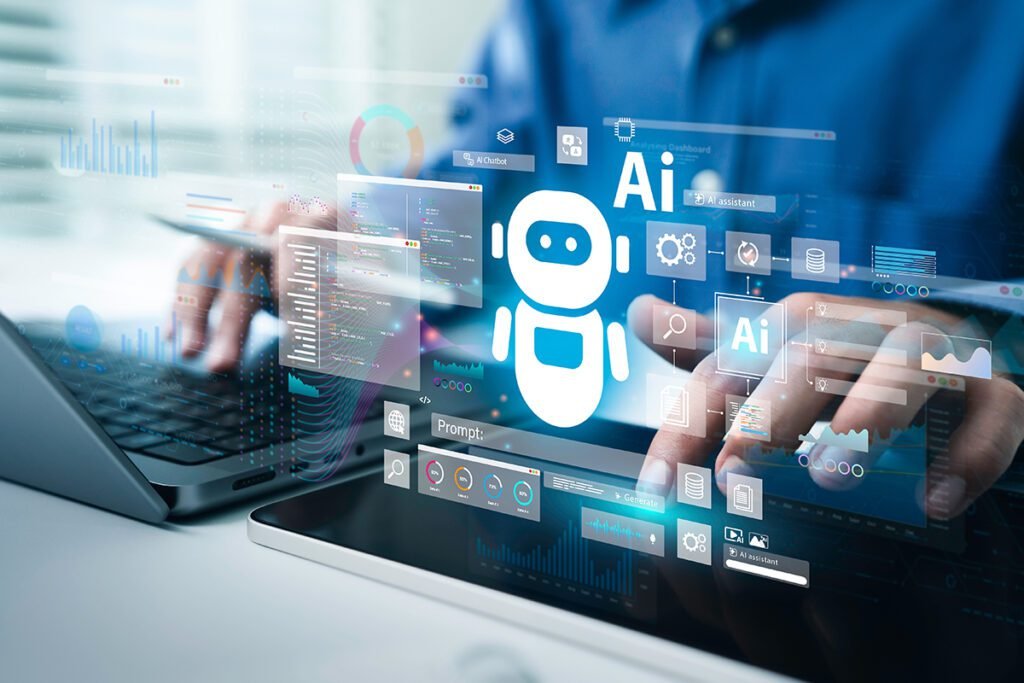The United Arab Emirates has firmly positioned itself as a trailblazer in artificial intelligence education across the Arab world. In a dramatic development that underscores the nation’s growing emphasis on future-ready skills, the UAE has recorded a meteoric rise in AI learning, surpassing both regional and global benchmarks.
According to a new report from Coursera, one of the world’s leading online learning platforms, the UAE experienced a remarkable surge of over 1,100% in enrollments in generative AI (GenAI) courses over the past year. This stunning growth places the country ahead of every other Arab nation and makes it one of the top three countries globally for GenAI learning—alongside the United States and China.
This sharp upward trajectory reflects a growing appetite among UAE citizens and residents to embrace new technologies, pivot toward future-facing careers, and participate in the digital economy. It’s not just a trend—it’s a national transformation in motion.

The Strategy Behind the Surge
The UAE’s approach to artificial intelligence is no accident. It is the result of a deliberate and well-funded national strategy that places technology, innovation, and human capital development at the center of economic growth.
With a national vision that looks beyond oil, the UAE has prioritized AI as a cornerstone of its long-term development goals. The country has already made headlines by appointing the world’s first Minister of State for Artificial Intelligence and establishing cutting-edge institutions focused entirely on AI education and research.

This proactive governance has laid a solid foundation for a surge in AI learning. Individuals across the public and private sectors are now upskilling in areas such as machine learning, data science, neural networks, and natural language processing, with a particular interest in generative AI technologies that are shaping the future of work.
AI Learning Becomes a National Movement
The numbers are staggering. Enrollments in GenAI courses in the UAE have increased more than elevenfold in just 12 months. This trend is not confined to technology professionals. Learners from diverse fields—including healthcare, finance, education, and government—are rushing to equip themselves with AI skills.
It’s a democratization of knowledge. From students to executives, from civil servants to entrepreneurs, people are turning to online platforms to reskill and upskill. The accessibility of these courses, many of which are offered in Arabic and come with real-time learning assistance, is helping bridge knowledge gaps and open doors to new economic opportunities.
Beyond individual learners, institutions are also jumping in. Universities, vocational training centers, and even high schools are integrating AI into their curricula, making it a core component of education from an early stage.
Building a Homegrown AI Ecosystem
While online learning is powering the grassroots movement, the UAE is also investing heavily in the infrastructure needed to support a thriving AI ecosystem. This includes world-class research universities, AI-focused think tanks, and next-generation data centers capable of supporting massive AI workloads.
The Mohamed bin Zayed University of Artificial Intelligence (MBZUAI) stands as a shining example of this commitment. It is one of the few universities in the world dedicated solely to AI and has already begun to produce a generation of homegrown experts trained in the most advanced technologies.
At the same time, local companies and government bodies are developing their own AI tools and applications, giving rise to a burgeoning tech scene that is firmly rooted in Emirati soil. From open-source Arabic language models to autonomous systems and AI-powered healthcare platforms, the UAE is turning into a regional innovation hub.
Learning That’s Local, Accessible, and Intelligent

Coursera, a key player in this movement, has been instrumental in making AI education more accessible to Arabic-speaking learners. The platform has expanded its Arabic-language offerings significantly, enabling a broader segment of the population to engage with cutting-edge content.
In addition to translation, Coursera has also introduced AI-powered features like a personalized learning assistant, real-time support, and interactive learning paths. These tools are designed to make learning more intuitive and impactful, especially for users new to complex technologies.
The result is a learning environment that is both inclusive and high-quality—one that mirrors the UAE’s broader vision of creating a knowledge economy driven by innovation, inclusion, and continuous improvement.
Transforming the Job Market
The rise in AI education is already beginning to reshape the UAE’s job market. Employers are increasingly looking for candidates who are proficient in digital tools, data analysis, and AI application. Roles that didn’t exist a decade ago—like prompt engineers, AI ethics officers, and machine learning consultants—are now in demand.
At the same time, traditional jobs are also evolving. In fields like marketing, logistics, and customer service, AI tools are becoming indispensable, and professionals are adapting by acquiring the skills to use these technologies effectively.
This shift is not just about staying employable. It’s about thriving in a new economic reality where creativity, adaptability, and tech-savviness are essential. The UAE is preparing its people not just to participate in this future—but to lead it.
A Youth-Driven Transformation
One of the most encouraging aspects of this transformation is the involvement of youth. Young people in the UAE are particularly enthusiastic about AI and are taking initiative in self-learning, hackathons, internships, and research collaborations.
Educational institutions are nurturing this interest with AI clubs, mentorship programs, and hands-on projects that turn students into innovators. Many of these youth-led initiatives are already bearing fruit, with new startups and research projects gaining attention both locally and internationally.
This generational shift is crucial. As younger Emiratis develop advanced AI competencies, they will become the backbone of a digital-first economy, contributing not just to the UAE’s prosperity but also to the region’s technological leadership.
Women in AI: Closing the Gender Gap
Another promising development is the growing participation of women in AI learning. Although challenges remain, more women are enrolling in tech and AI-related courses than ever before. Initiatives aimed at promoting gender equity in STEM are beginning to take effect, offering mentorship, scholarships, and career pathways designed specifically for women.
This increase in female participation is more than a metric—it represents a cultural evolution that values inclusivity, diversity, and talent over traditional norms. As the UAE continues to open doors for women in technology, it is setting a powerful example for the rest of the region.
Looking Ahead: Challenges and Opportunities

Despite these impressive gains, there are still hurdles to overcome. The depth of AI knowledge among learners, especially in more technical areas like deep learning and model optimization, still lags behind the pace of general course enrollments.
There is also the challenge of ensuring that learning translates into practical outcomes. Certifications are a starting point, but turning skills into innovations, startups, and economic value will require continuous effort, mentorship, and investment.
Moreover, the UAE must navigate the ethical and regulatory complexities of AI development. As AI becomes more integrated into daily life, ensuring transparency, fairness, and data privacy will be critical.
But these challenges are not unique to the UAE—they are part of a global journey into uncharted technological territory. What sets the UAE apart is its willingness to lead that journey with purpose, clarity, and ambition.
Conclusion: A Nation Reinventing Its Future
The UAE’s AI learning surge is more than a spike in numbers. It’s a signal of something deeper—a national awakening to the possibilities of a digital future. From policy to platforms, from classrooms to boardrooms, the UAE is reinventing how its people learn, work, and innovate.
In the past, the nation built its prosperity on natural resources. Today, it is building its future on human potential. With its bold investments, inclusive policies, and unrelenting focus on the future, the UAE is not just leading the Arab world in AI learning—it’s shaping a global conversation.
The transformation is underway. And the world is watching.
Do follow UAE Stories on Instagram
Read More: Unlock Bold Stories at Sharjah Biennial 16 Before It Closes












